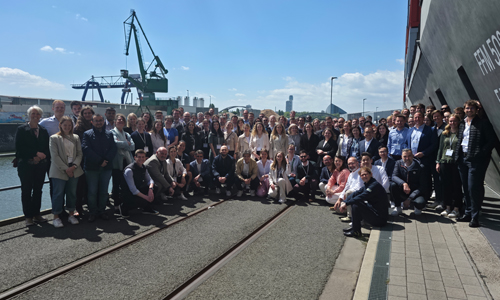Glossary
-
-
Carbon dioxide is the dominant greenhouse gas in the world. Carbon dioxide is produced by the combustion of carbonaceous fuels, including all fossil fuels. For a given energy source, the amount of CO2 generated depends directly on the amount of fuel and thus the energy converted. Main indicator of the greenhouse effect.
-
“Carbon dioxide equivalent” or “CO2e” is a term for describing different greenhouse gases in a common unit. For any quantity and type of greenhouse gas, CO2e signifies the amount of CO2 which would have the equivalent global warming impact.
-
-
Special shipping zones established by the IMO in which specific environmental directives on emissions apply
-
-
-
-
-
-
Encryption for secure transmission of data on the internet
-
-
-
KML is a file format to display transport routes, e.g. with GoogleEarth
-
-
-
-
-
-
-
-
Nitrogen oxides are mainly produced in combustion processes in plants and engines. Low emissions also occur in certain industrial processes and in agriculture. Ecological impacts: eutrophication, smog, ecotoxicity, human toxicity
-
Flight database with flight plans including detailed information on a flight number, such as aircraft types and flight routes
-
Ecological effects: human toxicity, smog
-
Standardised encrypted transfer of files over the internet
-
Sulfur dioxide is mainly generated during combustion processes of fossil fuels such as coal and oil by oxidation of the sulfur contained in the fuel. Ecological effects: acidification of soil and water, ecotoxicity, humotoxicity
-
-
20 foot container unit
-
Energy consumption and emissions of the vehicle
-
Location codes of important business and transport locations
-
WSDL is a platform-, programming language- and protocol-independent description language for network services (web services) for exchanging messages based on XML
-
Energy consumption and emissions to supply fuel or electricity
-
Energy consumption and emissions of a vehicle including the provision of its fuel
-

FAQ
 Frequently asked questions
Frequently asked questions
Events
 EcoTransIT World Insights Webinar
EcoTransIT World Insights Webinar
News
 EcoTransIT World Annual Meeting in Frankfurt Germany 14.-15.05.2025
EcoTransIT World Annual Meeting in Frankfurt Germany 14.-15.05.2025

